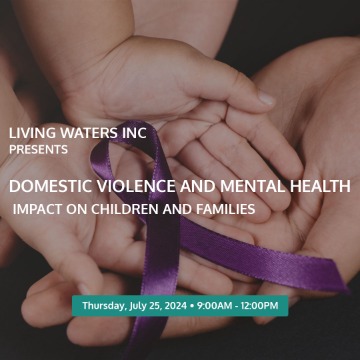Domestic violence is a harrowing experience that leaves deep emotional and psychological scars on its victims. For children and families, the path to healing is complex, but with the right support and strategies, recovery is possible. Here’s how you can help your family cope with mental health challenges after domestic violence.
Understanding the Impact
Children exposed to domestic violence may experience anxiety, depression, post-traumatic stress disorder (PTSD), and developmental delays. Family members may struggle with trust issues, anger, and feelings of helplessness. Recognizing these potential impacts is the first step in addressing them.
Create a Safe Environment
Safety is paramount. Ensure that your home is a secure place where everyone feels protected. This may involve legal measures such as restraining orders, but it also includes creating an emotionally safe environment where family members can express their feelings without fear.
Open Lines of Communication
Encourage open and honest communication. Let children know it’s okay to talk about their feelings and experiences. Use age-appropriate language to explain the situation and validate their emotions. Listening without judgment fosters a supportive atmosphere.
Seek Professional Help
Professional therapy is crucial. Psychologists, counselors, and social workers can provide the necessary tools and support for dealing with trauma. Family therapy can help rebuild relationships and foster understanding among family members.
Develop a Routine
Establishing a predictable routine can provide a sense of stability and normalcy. Consistent daily schedules for meals, school, and bedtime can help children feel more secure and regain a sense of control.
Encourage Healthy Coping Mechanisms
Promote activities that can help reduce stress and improve mental health. Exercise, art, music, and journaling are great outlets for emotions. Encouraging hobbies and interests can also help distract from negative thoughts and build self-esteem.
Educate and Empower
Educate yourself and your children about domestic violence and its effects. Knowledge can be empowering and help demystify their experiences. Teach them about healthy relationships and coping strategies to build resilience against future adversities.
Build a Support Network
Connect with support groups and community resources. Support groups can provide a sense of community and understanding. Lean on trusted friends, family members, and community organizations for emotional and practical support.
Monitor Progress and Be Patient
Healing is a journey. Monitor your family’s progress and be patient. Celebrate small victories and understand that setbacks are a natural part of recovery. Continually reassess your strategies and adjust as needed.
Promote Self-Care
Encourage self-care for all family members. Regular physical activity, a balanced diet, adequate sleep, and mindfulness practices like meditation can significantly improve mental health. Make self-care a family priority.
Advocate for Change
Get involved in advocacy and awareness efforts. Raising awareness about domestic violence can help prevent it and support other families in similar situations. Advocacy can also be a healing and empowering experience.
Conclusion
Healing from the trauma of domestic violence is challenging but achievable. By creating a safe environment, fostering open communication, seeking professional help, and promoting healthy coping mechanisms, you can help your family navigate this difficult journey. Remember, recovery takes time, but with support and resilience, your family can emerge stronger and healthier. If in need of additional support, consider attending Living Waters’ Domestic Violence and Mental Health: Impacts on Children and Families event. This important dialogue, hosted in collaboration with Empower Your Life, LLC, will be held on July 25th from 9:00 AM until 12:00 PM at StoneBridge Church Community. It will convene social workers, counselors, researchers, justice-involved professionals, community and faith leaders, and other stakeholders from Child Welfare Services to explore the intersection of domestic violence and mental health and its profound impacts on children and families. For more information and to register, please visit https://livingwatersfa.com/domestic-violence-and-mental-health/.

